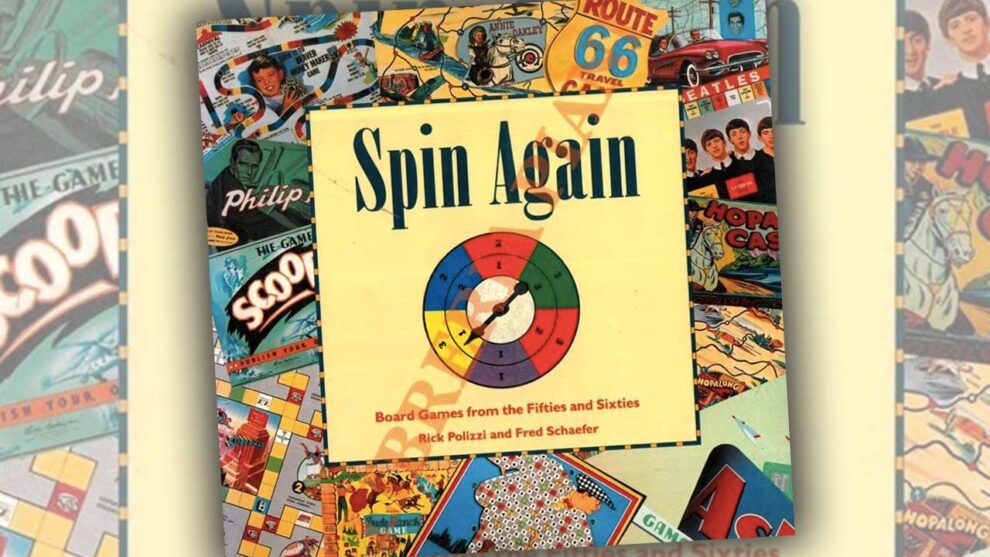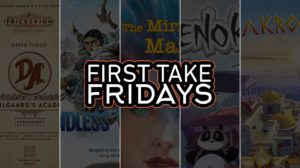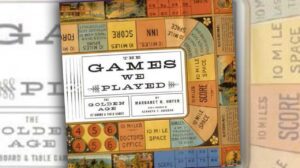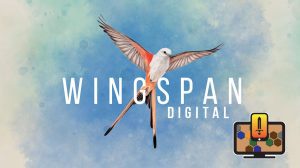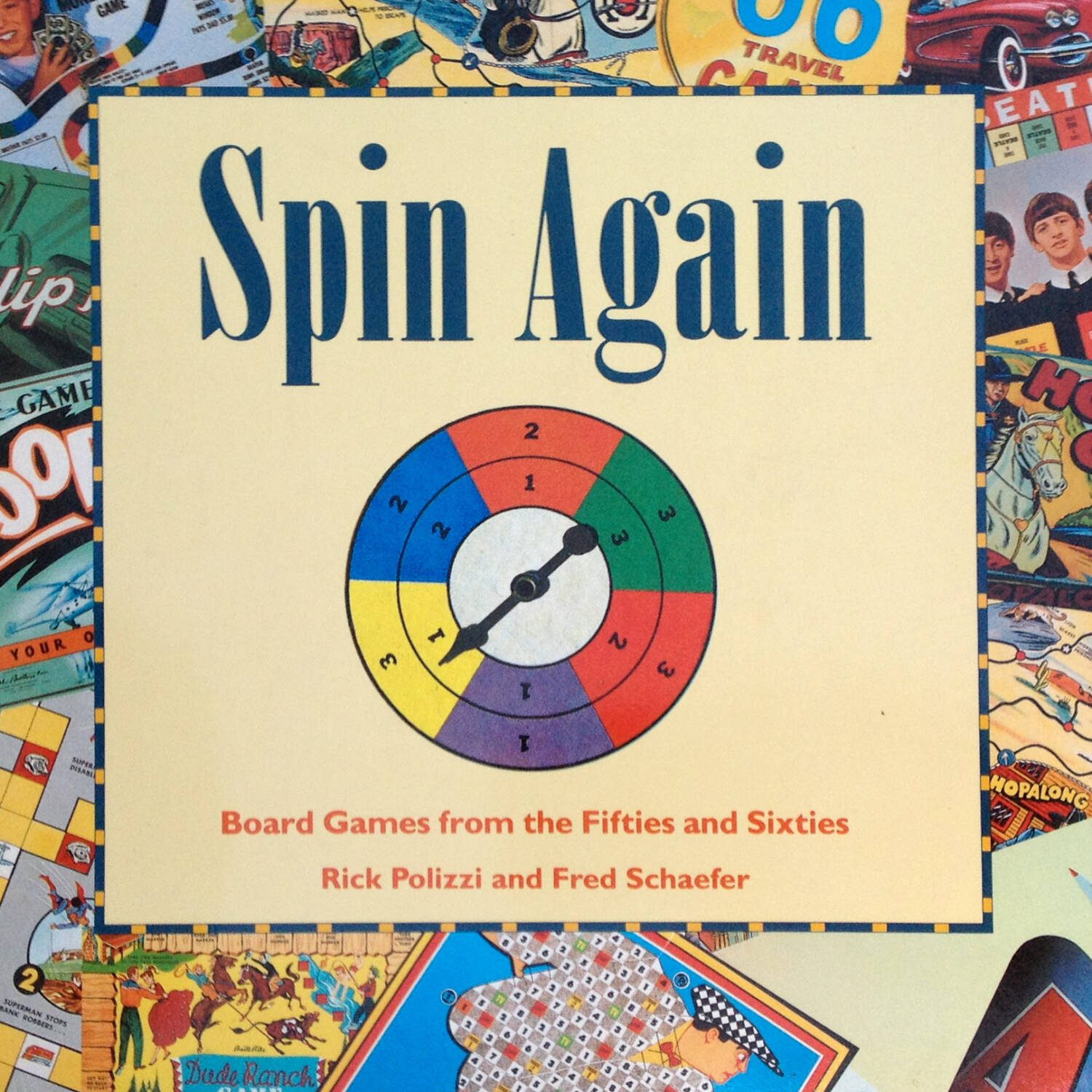
Spin Again (Chronicle Books, 1991) by authors Rick Polizzi and Fred Schaefer, is an oversized, 10” x 10” square format book with full-color photographs of games from one of the most important periods of time in the American board game industry: the 1950s and the 1960s.
The Introduction begins with a review of the history of board games in America and ends with a brief overview of the social climate of the 1950s and 1960s. These two decades in American history saw the introduction of television sets in the average American household. Between 1948 and 1958, Americans spent over $15 billion on television sets. This created new opportunities for viewers and advertisers alike.
Starting with “Don’t Touch that Dial” the authors present a history of the new licensing companies created to auction off rights for television program-based toys and games, and the companies competing for those licenses. This became such a lucrative business that many such licenses were sold before the program ever aired. While many younger readers may not recognize the names of Phil Silvers or George Gobel, or such television shows as Get Smart, Bewitched, McHale’s Navy and The Man from U.N.C.L.E, each was popular enough in its day to have a board game produced.
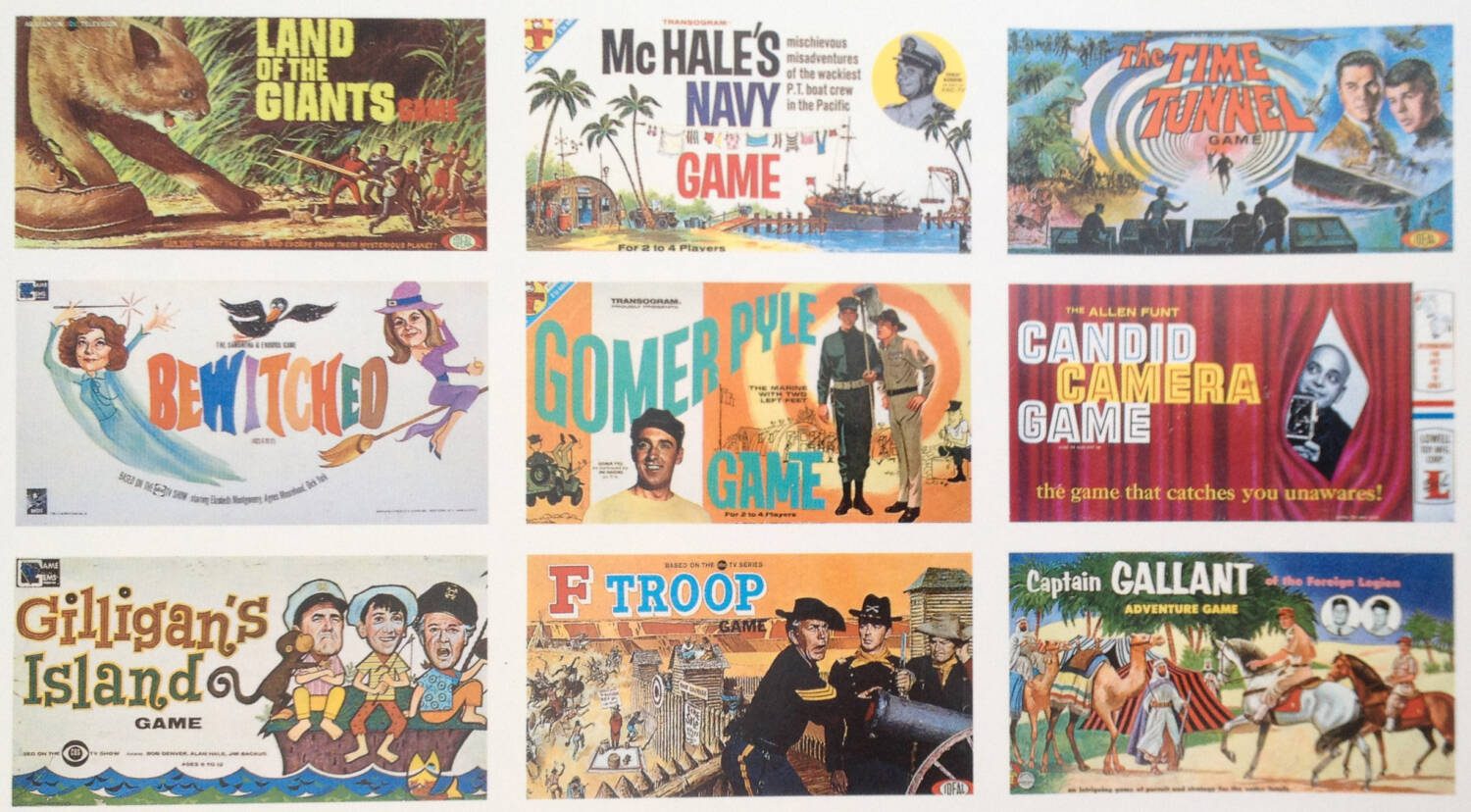
Popular game shows of the day, mainstays of both daytime and primetime, including Twenty One, Beat the Clock, and You Bet Your Life also had home versions published.
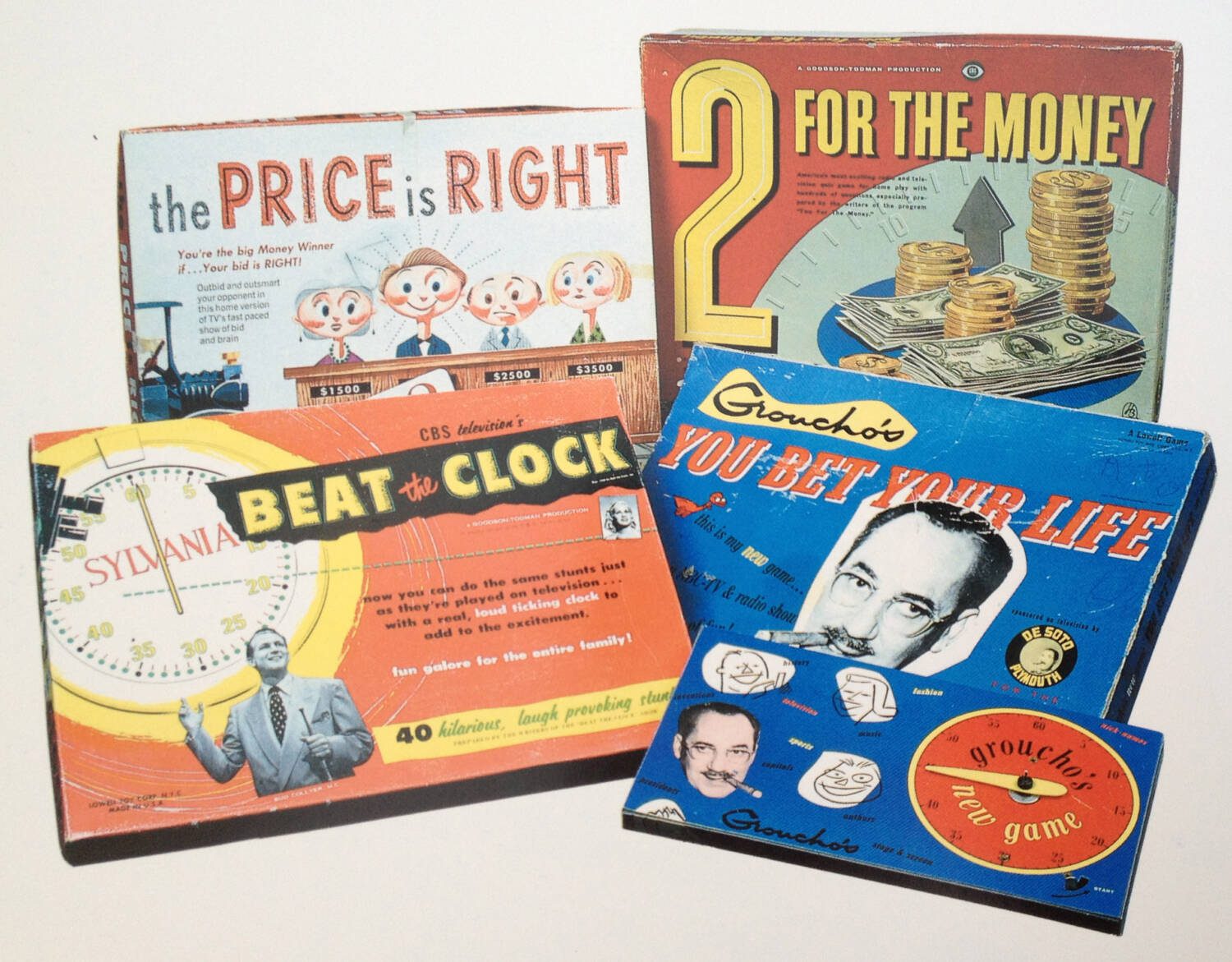
In “Turn Out the Lights”, the authors look at the horror and mystery games that became popular in the 1960s. Transogram released two glow-in-the-dark games (Green Ghost and Ka-bala), while Milton Bradley looked to TV to put out The Outer Limits and Kreskin’s ESP. Ideal produced Godzilla, The Twilight Zone, King Kong and Mystic Skull: The Game of Voodoo.
With children being the primary audience for these games, it is no surprise that Saturday Morning cartoons and other animated shows should have their own board games. The chapter “Pajamas and Cereal” depicts games for Bullwinkle, Captain Kangaroo, Felix the Cat, Adam Ant, and Milton the Monster.
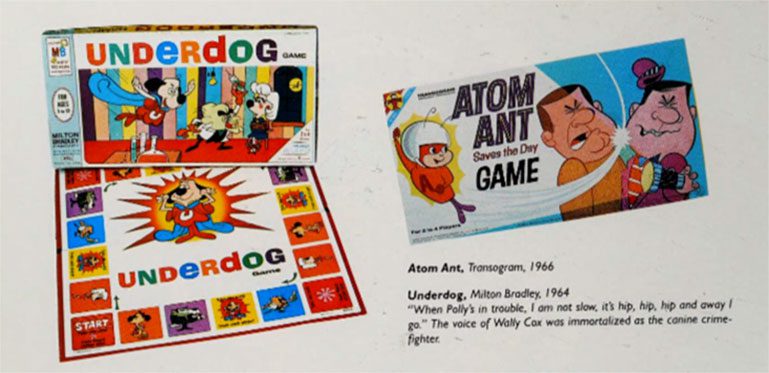
The earliest superhero games are also included featuring Superman, Captain America, Batman, and The Phantom.
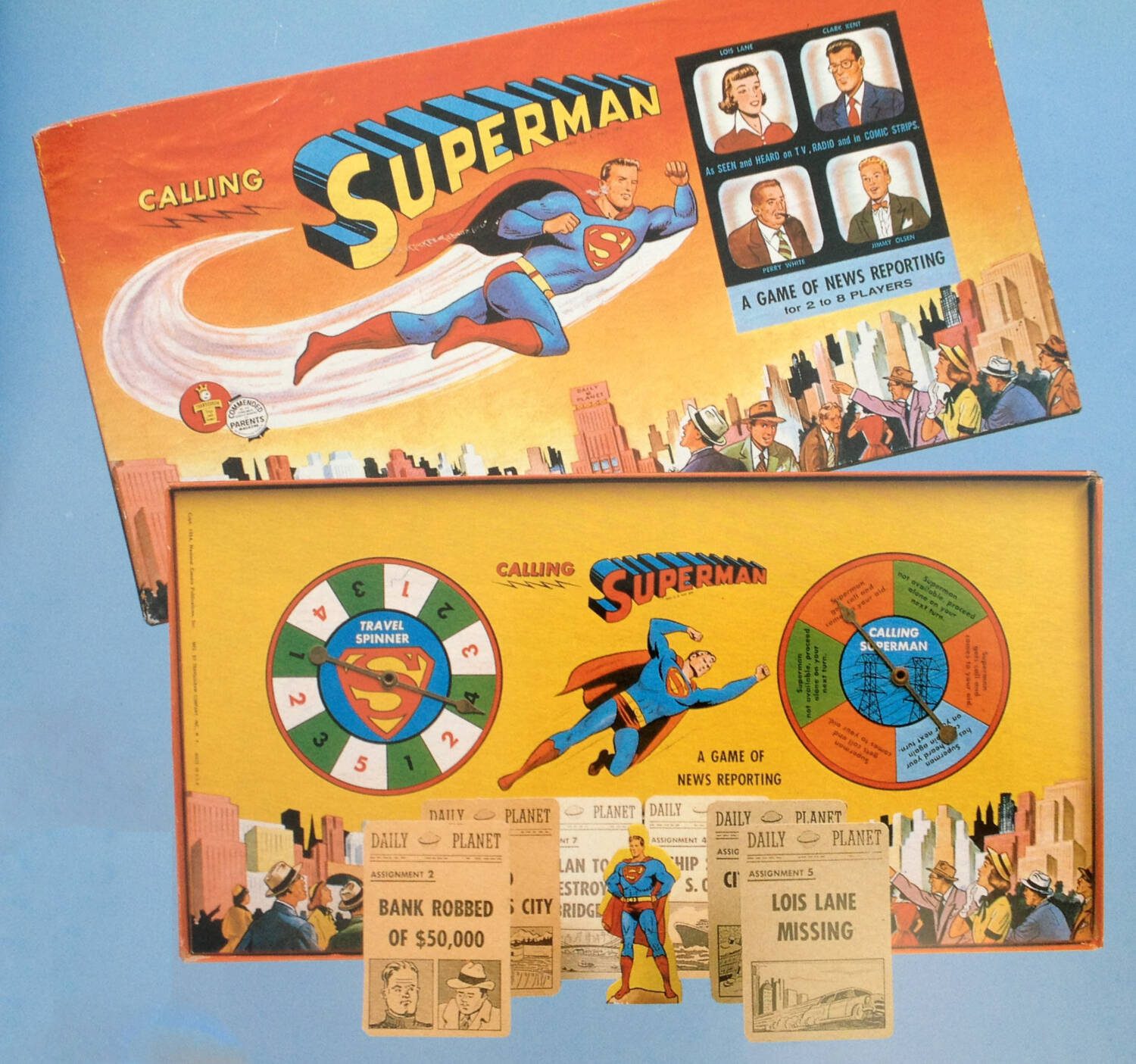
In a chapter devoted to games marketed to boys, the emphasis is on games set during wartime (PT Boat 109, Rat Patrol) and sports-themed games (basketball, football, baseball). A later chapter focusing on games marketed to girls includes Mystery Date, The Barbie Game, The Gidget Game, and games about teen idols such as The Monkees.
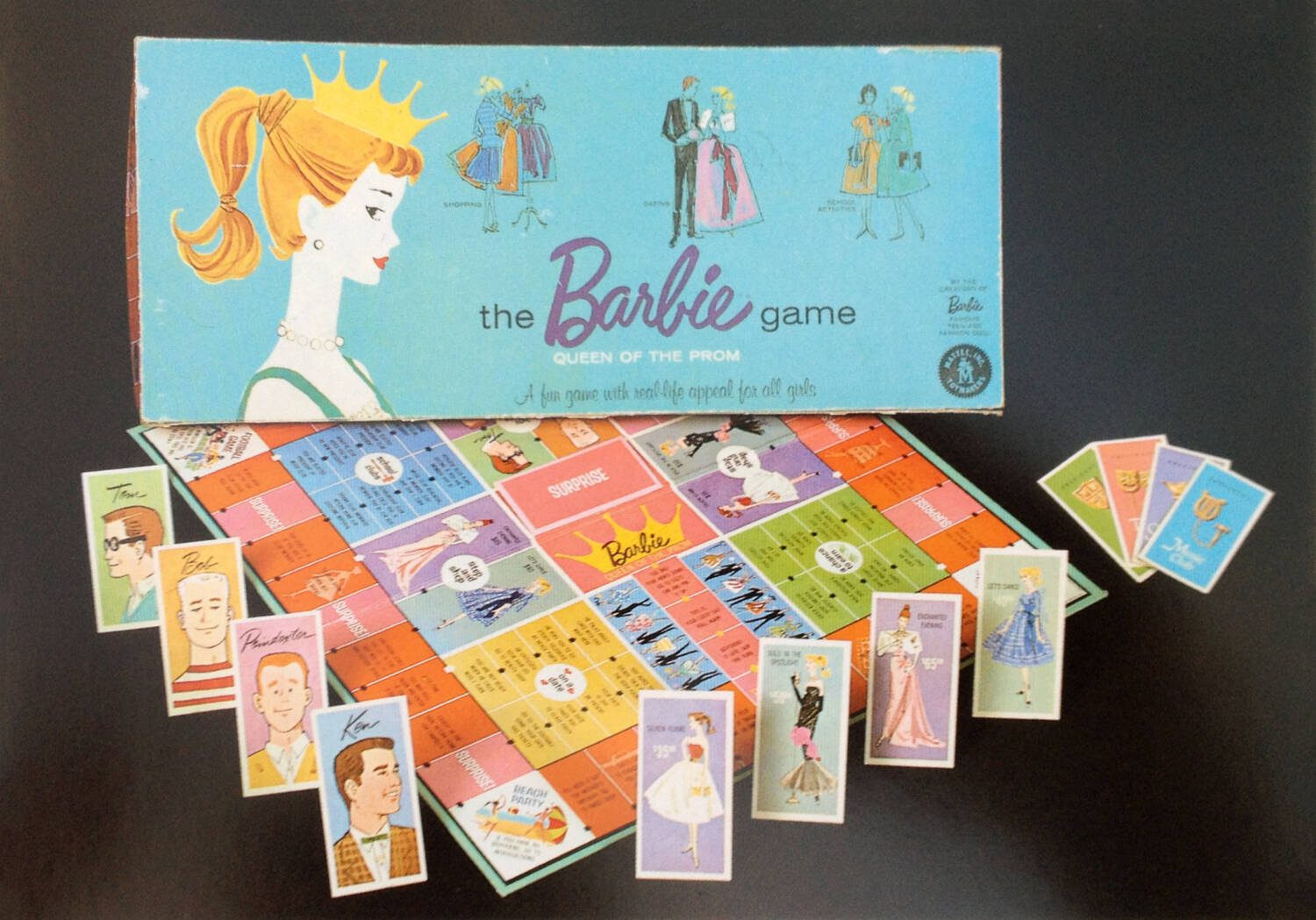
Three of the most popular television genres of the era are well represented in their own chapters: the 50’s Western, the 60’s Detective series…

and the 60’s Science Fiction series.
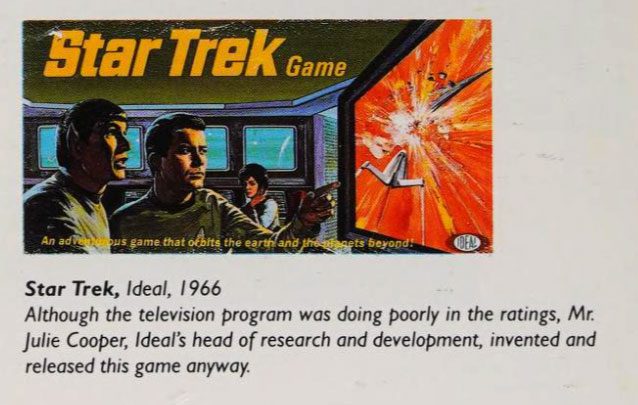
And let’s not forget those mop tops from Liverpool.
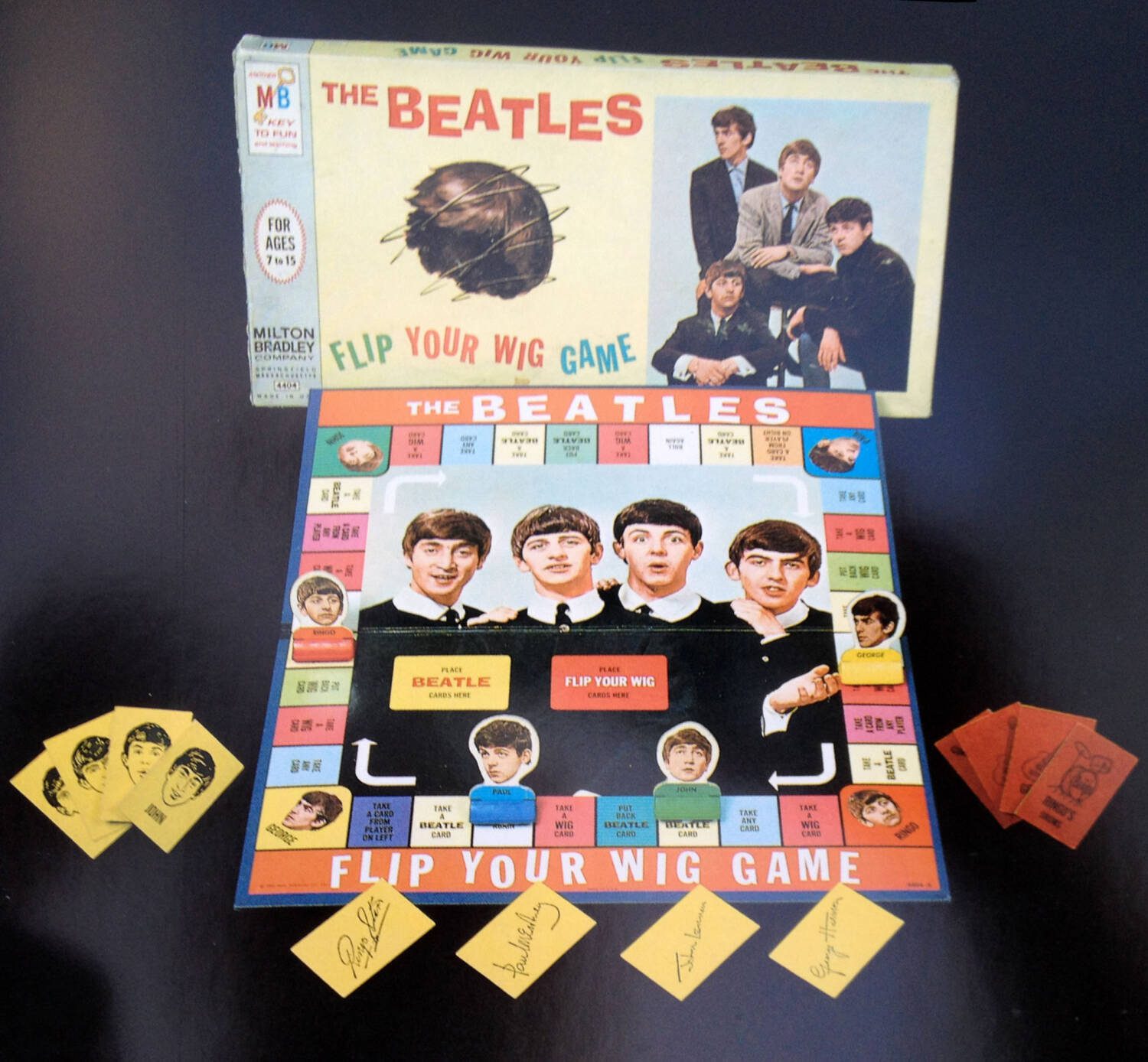
Walt Disney teamed up with Parker Bros to produce a series of games to help promote some of its hottest properties. Kids wearing their coonskin caps could play one of two Davy Crockett games. No less than seven games were created to bring aspects of Disneyland to the dining room table, including Adventureland, Tomorrowland, and Frontierland.
While Spin Again could be enjoyed simply as a book of old board game photographs, it is more than just that. Throughout the book, authors Polizzi and Shaefer include the histories of certain board game companies and the people behind the companies and/or games. This brief background material and the accompanying anecdotes make for entertaining reading. If you’re having trouble finding it, you can borrow it by the hour from The Internet Archive.
Some Personal Memories from the Book
Is Time Bomb really a game? It was a hot potato-like game from the television Spy genre. The ‘fuse’ of the bomb was twisted and would start the ‘bomb’ ticking. Whoever was holding it when the explosion sounded was the loser.
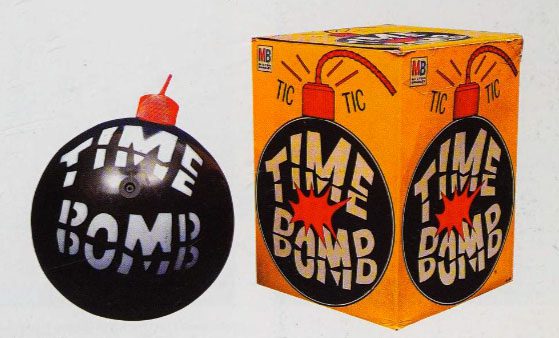
So why include it here? Because I had it as a kid and remember playing it as a birthday party game. The winner got a party favor.
And then there’s the Green Ghost game.
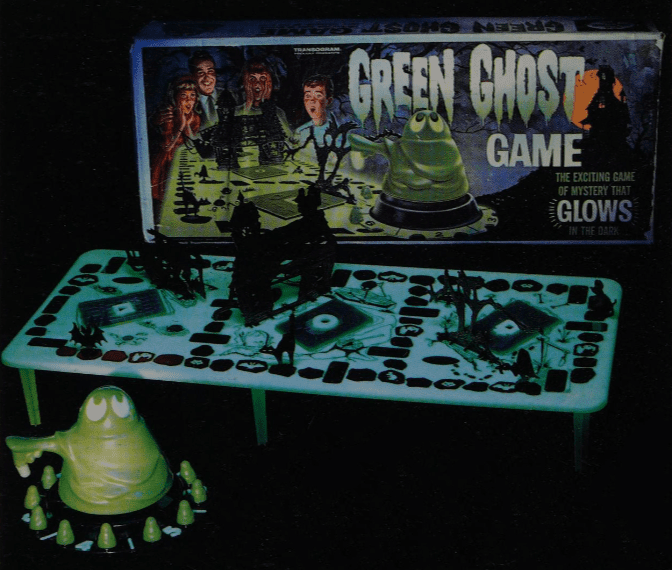
Yes, I know it’s nothing but a race game. Yes, I know the glow-in-the-dark element is just a gimmick. Yes, I know with my modern, mature gaming sensibilities I will likely be very disappointed should I ever play it. However, the kid in me still remembers being enthralled by the commercials for Green Ghost and still wants a working copy.


